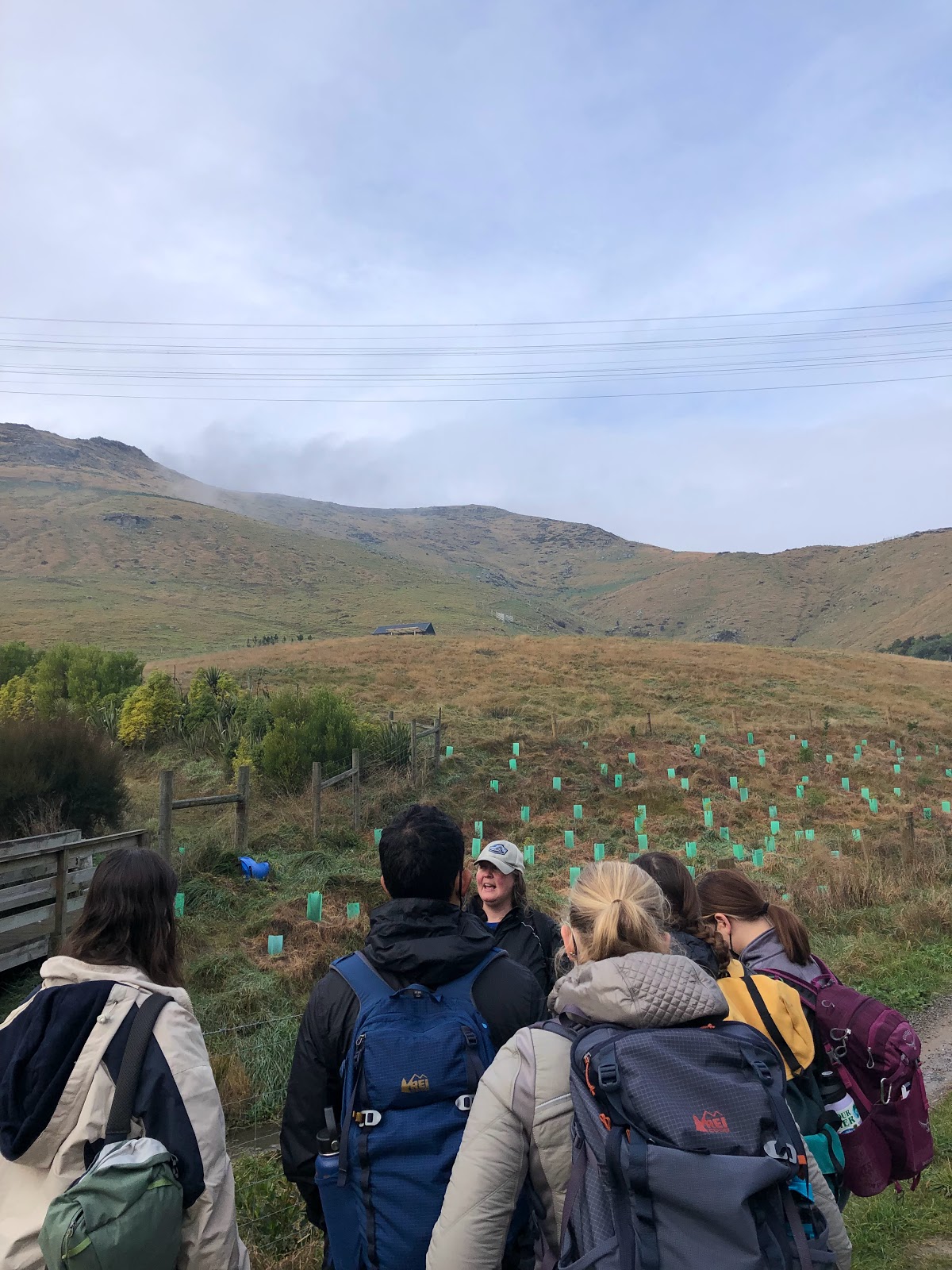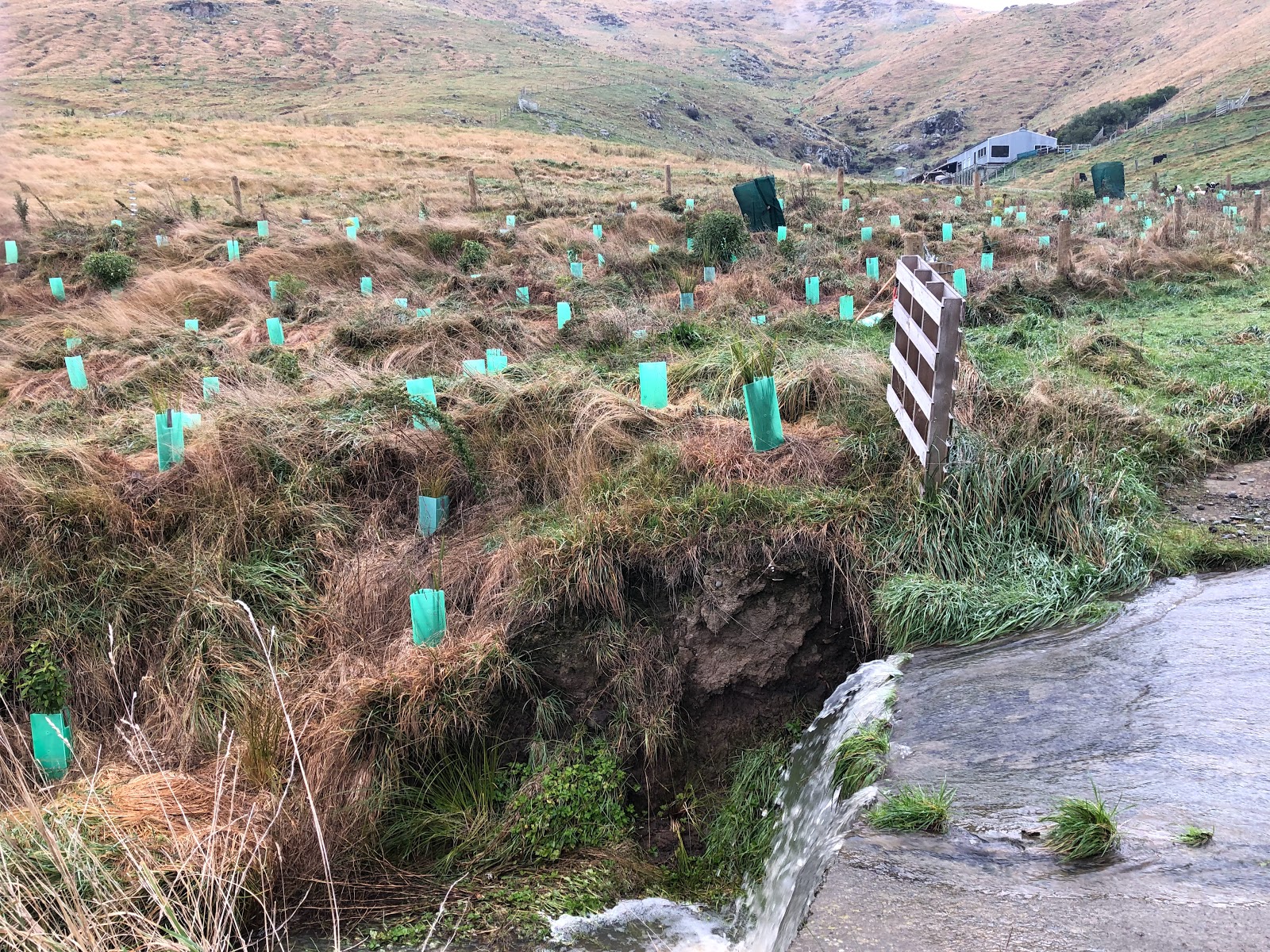Kia Ora! Welcome back to the blog. Someone will be recapping our free weekend soon, so keep a lookout for that post. As for now, we are getting back to our remaining schedule with restoration today. Sadly, the four others and Dr. H will be isolating a few more days.
After piling inside the gatorwaka we traveled to the Avoca Valley Project for planting and weeding with the Summit Road Society. Sophie from the Banks Peninsula Trust was also there to join us (Met her on July 7 during our barberry restoration). Marie from the society was there to lead us in planting 50 indigenous plants around the hills. The society's focus is on protecting and preserving the southern Port Hills. As a charity, they have realized that to protect land best you must simply own it. They started to journey of acquiring land years ago and now own four reserves that they plan to restore. 25 years ago, the Avoca Valley started being restored with the objective of restoring the once dried-out stream that runs through the land.
 |
| Marie showed us the previously planted trees along the valley. |
 |
| At the bottom, you can see the restored stream that is flowing fast and the native plants that have been planted along it. |
The society believes that there is a right tree for the right spot, meaning the plants need to go in specific places to allow for the best growth. A successful planting plan will lead to natural regeneration producing trees that will create seedlings by themselves. Marie says this is the best way to plant, leaving it all up to nature and just going with the flow of the land similar to the Hinewai concept. The goal is to create a lowland podocarp valley throughout the 35 hectares. Creating this space will also help connect the southern hills through native bush. Since there is already a significant number of existing and regenerating native forests and shrublands the area has great potential.
 |
Since the Summit Road Society is volunteered run and their funding is based on donations, one way the group can get started earlier without waiting for funds is to plant species that sheep/grazers won't eat. One example is kanuka which is unpopular with grazers. Once the kanuka is tall enough it will shade its area killing the tall grasses and other introduced plants. And when the society gets proper funds then they can start building a fence around the property and planting more natives. We learned the expression oily ragged which means running on nothing, which is what Marie says the society runs. But with many donations and help from local groups, we can already see what their hard work has accomplished. The stream is now flowing and shows signs of healthy water. Workers that were there a year ago described the place as abandoned and empty. Now, they tell of how loud it is with birds chirping and insects buzzing. Bringing in the natives and creating a working waterway has already increased the native biodiversity in the area. In ten years' time, the land will be a thriving ecosystem full of natives that people can enjoy.
 |
| A friendly dog that kept us company. |
 |
| And friendly cows that mooed at us in disbelief (disbelief that they couldn't get any of the yummy natives). |
 |
| In a year or so, this land will go through an amazing transformation that will support many native species of birds and plants. |
After planting our natives we packed up into the gatorwaka. Colin drove us to a building that used to be used for leather processing and sheering. However, now the building is filled with local shops and complexes. We had a teatime break and looked around until it was time to head back to the dorms for lunch. A short but fulfilling day out in the town. Special thanks to Colin for driving us around today and filling in for Dr. H. See you tomorrow!
Cheers,
Debriana Love




No comments:
Post a Comment